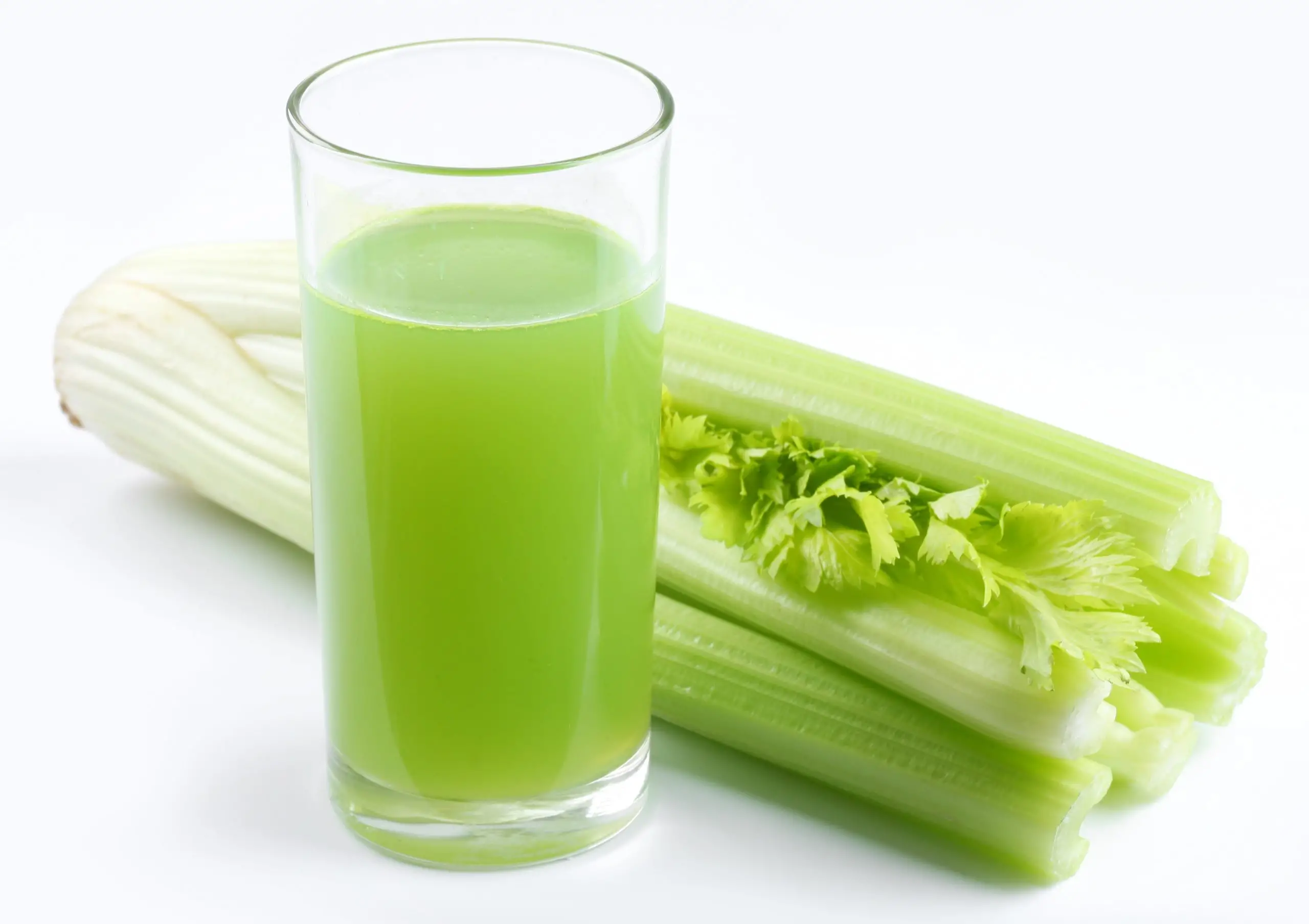Unlocking the Nutritional Benefits of Celery A Comprehensive Guide

Celery is often overlooked as a mere garnish or a low-calorie snack, but this humble vegetable has a lot more to offer than meets the eye. With its crunchy texture and mild flavor, celery is a versatile ingredient that can be incorporated into a variety of dishes. But what makes this vegetable truly remarkable are its numerous health benefits.
From weight loss to improved digestion, celery nutrition plays a vital role in promoting overall wellness. In this comprehensive guide, we will delve into the nutritional value of celery, explore its potential health benefits, and learn how to incorporate it into our daily diet.
What is Celery Nutrition?
Celery belongs to the Apiaceae family, which also includes carrots, parsley, and fennel. It is a biennial plant that is native to the Mediterranean region and has been used for centuries in traditional medicine. The parts of the celery plant that are commonly consumed are the stalks, leaves, and seeds.
Celery is a low-calorie vegetable, with only 16 calories per cup (101 grams) chopped. However, it is rich in nutrients such as vitamin K, vitamin C, potassium, folate, and fiber. It also contains phytonutrients, including flavonoids and polyphenols, which have antioxidant and anti-inflammatory properties. These compounds not only give celery its distinct flavor but also contribute to its many health benefits.
Benefits of Celery Nutrition
The high nutrient content of celery makes it a valuable addition to any diet. Its benefits go far beyond just being a nutritious vegetable. Here are some of the top benefits of incorporating celery into your diet:
Improved Digestion
Celery is an excellent source of dietary fiber, with 1.6 grams of fiber in a one-cup serving. Fiber plays a crucial role in maintaining digestive health by keeping the bowels regular and preventing constipation. It also aids in weight management by promoting feelings of fullness and reducing calorie intake.
Moreover, celery contains a compound called apigenin, which has been found to have anti-inflammatory effects on the digestive system. This can help ease symptoms of conditions like irritable bowel syndrome (IBS) and Crohn’s disease.
Lower Blood Pressure
Celery is rich in potassium, with one cup providing 263 milligrams. Potassium is a mineral that helps regulate blood pressure by counteracting the effects of sodium. High sodium intake can cause fluid retention and increase blood pressure. Potassium helps to balance this out, leading to lower blood pressure levels.
A study conducted on rats showed that celery extract had a positive effect on lowering blood pressure in hypertensive animals. Further research is needed to determine if this same effect applies to humans, but incorporating celery into your diet may still be beneficial for maintaining healthy blood pressure levels.
The Nutritional Value of Celery
Celery is packed with essential vitamins, minerals, and antioxidants that are vital for overall health. Here is a breakdown of the nutrients found in one cup (101 grams) of chopped celery:
| Nutrient | Amount |
|---|---|
| Calories | 16 |
| Carbohydrates | 3 grams |
| Fiber | 1.6 grams |
| Protein | 0.7 grams |
| Fat | 0.2 grams |
| Vitamin K | 30% of the RDI (Recommended Daily Intake) |
| Vitamin C | 5% of the RDI |
| Folate | 9% of the RDI |
| Potassium | 8% of the RDI |
As you can see, celery is low in calories and carbohydrates but high in important vitamins and minerals. It also contains small amounts of other nutrients such as calcium, magnesium, and iron.
How to Incorporate Celery into Your Diet
Now that we know about the nutritional benefits of celery, let’s explore some ways to incorporate it into our daily diet. Here are a few ideas:
Snacks and Dips
The most common way to eat celery is raw as a snack. Its crisp texture makes it an excellent vessel for dips like hummus, ranch, or peanut butter. You can also add some slices of celery to your cheese platter for a healthy and refreshing touch.
Soups and Stews
Celery is a common ingredient in soups and stews, adding both flavor and nutrition to the dish. Its mild taste makes it easy to combine with other vegetables and proteins. You can also try making a creamy celery soup for a warm and comforting meal.
Salads and Sandwiches
Add some crunch to your salads and sandwiches by including celery. It pairs well with greens, nuts, fruits, and other vegetables. Try a classic Waldorf salad with celery, apples, and walnuts for a delightful combination of flavors.
Smoothies and Juices
If you’re not a fan of eating celery as it is, you can still reap its nutritional benefits by incorporating it into your smoothies or juices. Blend it with other fruits and vegetables to create a refreshing and nutritious drink.
Celery Nutrition for Weight Loss
One of the main reasons celery has gained popularity in recent years is its association with weight loss. But does celery really help with shedding those extra pounds?
While celery itself does not have any magic weight-loss properties, its low-calorie content and high fiber content can contribute to weight loss. As mentioned earlier, fiber promotes feelings of fullness, which can lead to reduced calorie intake. This, combined with regular exercise and a balanced diet, can aid in weight loss.
Another factor that may contribute to the weight loss claims of celery is its diuretic effect. Celery is made up of about 95% water, making it a hydrating vegetable. This high water content, along with its fiber and potassium content, can help flush out excess fluids and reduce bloating.
Celery Juice: Is it Really Nutritious?
Celery juice has become a popular trend in the health and wellness community, with many claiming it to be a “miracle cure” for various ailments. But is there any truth to these claims?
While there is no denying that celery is a nutritious vegetable, the same cannot be said for celery juice. Juicing removes most of the fiber from celery, leaving only the liquid. This means that you lose out on all the fiber-related benefits of celery when drinking the juice.
Furthermore, consuming large amounts of celery juice on an empty stomach can lead to digestive issues such as abdominal pain, diarrhea, and flatulence. It is also essential to note that while celery juice may have some benefits, it is not a substitute for a balanced diet and should not be relied upon as a sole source of nutrition.
Potential Health Benefits of Celery Nutrition
Celery nutrition goes beyond just improving digestion and aiding in weight loss. Here are some other potential health benefits associated with celery:
Anti-Inflammatory Properties
As mentioned earlier, celery contains compounds like apigenin, which have anti-inflammatory effects. Chronic inflammation is linked to various diseases such as heart disease, cancer, and arthritis. Incorporating celery into your diet may help reduce inflammation and lower your risk of these conditions.
Moreover, celery also contains antioxidants like vitamin C and beta-carotene, which help fight free radicals and prevent oxidative stress in the body. This can further reduce inflammation and promote overall health.
Improved Heart Health
The fiber and potassium content in celery can contribute to improved heart health. Fiber helps lower cholesterol levels by binding to bile acids, preventing them from being reabsorbed into the body. This triggers the liver to use more cholesterol to create new bile acids, effectively reducing overall cholesterol levels in the body.
Additionally, potassium helps balance sodium levels in the body, which can help lower blood pressure and reduce the risk of heart disease. Celery also contains a compound called phthalides, which has been found to relax the muscles of the arteries, leading to better blood flow and a lower risk of heart disease.
Lowered Cancer Risk
The antioxidants in celery may also have anti-cancer effects. Studies show that celery consumption is associated with a reduced risk of colon, stomach, and breast cancer. Additionally, apigenin, the compound found in celery, may help inhibit the growth of cancer cells and induce cancer cell death.
Comparing Celery Nutrition to Other Vegetables
While celery is undoubtedly a nutrient-dense vegetable, it’s essential to consider how it compares to other vegetables in terms of nutrition. Here is a comparison of celery nutrition with some other popular vegetables:
| Vegetable | Calories per Cup (101 grams) | Fiber per Cup (101 grams) | Potassium per Cup (101 grams) |
|---|---|---|---|
| Celery | 16 | 1.6 grams | 263 mg |
| Spinach | 7 | 0.7 grams | 167 mg |
| Broccoli | 31 | 2.4 grams | 288 mg |
| Carrots | 52 | 3.6 grams | 203 mg |
As you can see, while celery is low in calories, it may not be the highest in fiber or potassium compared to other vegetables. However, incorporating a variety of vegetables into your diet is still crucial for overall health and wellness.
Ways to Prepare and Cook Celery for Optimal Nutrition
When it comes to preparing and cooking celery, there are a few things to keep in mind to ensure you’re getting the most nutrition out of this vegetable.
Don’t Overcook
Overcooking celery can lead to a loss of nutrients, especially water-soluble vitamins like vitamin C and B vitamins. It’s best to cook celery for a short period or eat it raw to retain its nutritional value.
Store Properly
To preserve the nutritional content of celery, it’s essential to store it properly. Store celery in the refrigerator, preferably in a perforated plastic bag to maintain its moisture level. If stored correctly, celery can last up to two weeks.
Eat the Leaves
Celery leaves are often removed and discarded, but they actually contain more nutrients than the stalks. They are particularly high in magnesium, calcium, and potassium. Include them in your dishes as much as possible to get the most out of celery nutrition.
Incorporating Celery Nutrition into a Balanced Diet
While celery has many health benefits, it’s crucial to remember that it’s not a magic cure-all vegetable. For optimal health, it’s important to incorporate a variety of nutrient-dense foods into your diet, including fruits, vegetables, whole grains, lean proteins, and healthy fats.
Here are some tips to help you incorporate celery nutrition into a balanced diet:
Replace High-Calorie Snacks
Instead of reaching for chips or cookies when you need a snack, opt for some celery sticks with hummus or peanut butter. This will not only satisfy your hunger but also provide you with essential nutrients.
Add Variety to Your Salads
If you usually stick to lettuce salads, try mixing things up by adding some celery for an extra crunch and nutrition boost. You can also experiment with different dressings and toppings to keep things interesting.
Make Healthy Substitutions
Replace high-calorie ingredients in your recipes with celery. For example, use celery puree instead of cream to thicken soups, or replace half of the potatoes in a mash with celery root for a lower-calorie and nutrient-rich alternative.
Conclusion
Celery is a powerful vegetable that offers a wide range of nutritional benefits. From improved digestion to better heart health, incorporating celery into your diet can have numerous positive effects on your overall well-being. So the next time you see celery on your plate, don’t just push it to the side as a garnish – remember all the amazing nutrients it has to offer.












